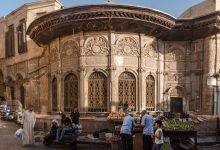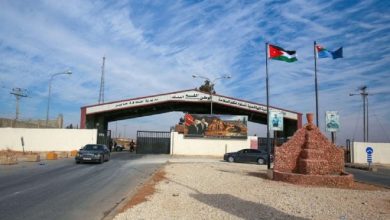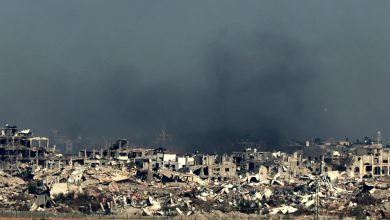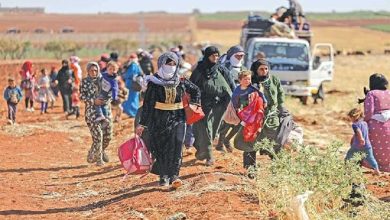Egypt’s Ras El Hikma Project: Economic Opportunities and Concerns
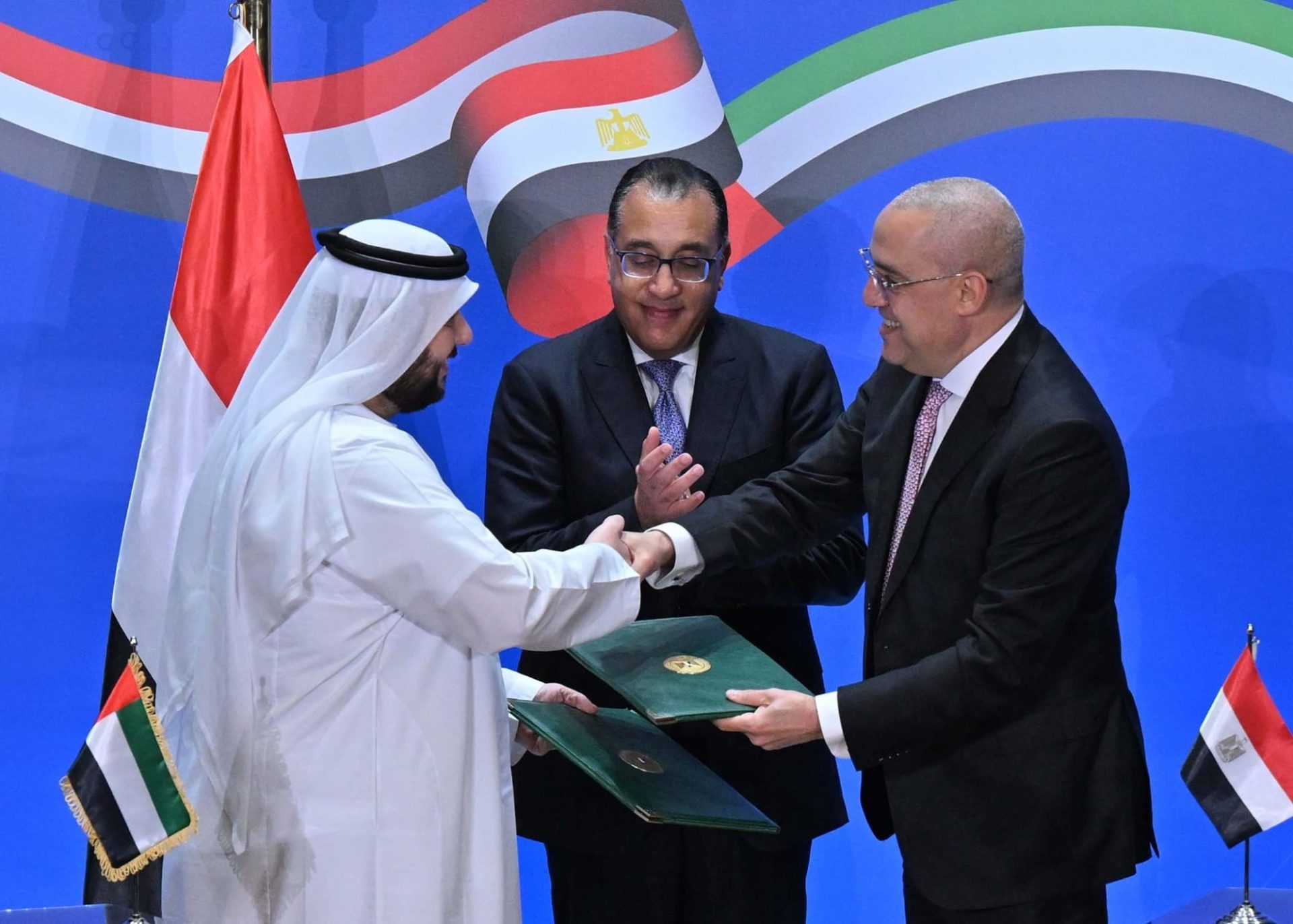
Watan-The American Free Network published a report on Egypt’s announcement of establishing a free economic zone and granting a golden license regarding the Ras El Hikma project following the signing of the deal with the UAE.
The Egyptian government had announced on Wednesday several decisions regarding the Ras El Hikma project on the North Coast in the Matrouh Governorate, including the establishment of a special free zone and another investment zone, granting them the golden license, in addition to the establishment of an international tourist port.
What does this Egyptian step mean?
According to the report, some economic experts believe that the government facilitations for the investment project favor Emirati investors at the expense of the state, which may negatively affect the Egyptian economy.
While others consider it an encouragement for investors and an attempt to avoid Egyptian bureaucracy to ensure the rapid development and progress of the project.
The government stated in a press release: “Approval has been granted for the project of the Cabinet’s decision to establish a special free zone under the name of (Ras El Hikma Development Urban Project Company) an Egyptian joint-stock company in Ras El Hikma city, in addition to approving the project of the Prime Minister’s decision to establish an investment zone in Ras El Hikma city.”
“منطقة حرة ورخصة ذهبية” في رأس الحكمة.. في صالح الإمارات أم مصر؟https://t.co/tjINt3d5Wp
— قناة الحرة (@alhurranews) April 25, 2024
The decisions included approving the project of the Cabinet’s decision to grant Ras El Hikma Development Urban Project Company one approval (the golden license) for each of the investment zone project and the special free zone, as well as approving the project of the Prime Minister’s decision to form the board of directors of the investment zone for Ras El Hikma.
The decisions also included approving the establishment by Ras El Hikma Development Urban Project Company of a specialized international tourist port in the new city of Ras El Hikma.
Concerns and warnings
On the other hand, economist Karim Abu Al-Fadl said that the fundamental crisis regarding Ras El Hikma is the government’s failure to announce the project details and conditions clearly and in detail since the contract was signed, so every new decision will be subject to social debate and suspicion as well.
He added that establishing a free zone means not being subject to Egyptian customs and its increasing and unstable fees due to its link to the dollar price.
He explained that this means investors in this zone will be able to export and import at international prices without conditions or complex restrictions like any other investor operating in Egypt outside the Ras El Hikma zone.
الاستثمارات الخليجية في #مصر
مؤخرا، أعلنت الحكومة المصرية موافقتها على إنشاء منطقة حرة باسم شركة مشروع #رأس_الحكمة للتنمية العمرانية. وميناء تخصصي سياحي في مدينة رأس الحكمة. pic.twitter.com/H13JiNT3pl— Zawia3-زاوية ثالثة (@zawiaa3) April 27, 2024
He pointed out that everything this project needs in terms of raw materials and goods will not be withdrawn from the Egyptian market but will be imported immediately at prices lower than the local supply.
At the same time, Abu Al-Fadl warned of the risks of exploiting these facilitations, saying: “We do not want to repeat the experience of the free zone in Port Said, which was one of the main reasons for eliminating local production and industry because simply, this zone will provide raw materials and goods at cheaper prices than the local supply and then manufacture and export them again to achieve profits, thus harming others, especially considering the severe inflation in the markets of goods and commodities.”
He gave an example by saying: “In this free zone, we will find an increase in demand for imported cars at prices lower than the Egyptian market because they are exempt from customs, and these cars will have special plates allowing their owners to drive them outside this zone.”
Damage to local industry
The economic expert also talked about protecting local industry, saying that it is possible that local industry and products may be harmed as a result of such decisions if they are not linked to other decisions, represented in setting controls on what is exported and imported so that it does not contradict the needs of the local market and to prevent inflation rates from worsening.
He indicated that it is good for the government to encourage investors by providing incentives, which economists have been calling for for years, but the crisis lies in the inequality and clarity of decisions, meaning why don’t these facilitations apply to other investors and businessmen.
🟡خلال أيام.. وصول الدفعة الثانية من صفقة تطوير #رأس_الحكمة بقيمة 14 مليار دولار.#بانكير pic.twitter.com/DQkPjwnZA2
— بانكير – Banker (@BANKER__NEWS) April 26, 2024
Abu Al-Fadl highlighted the suffering of the local investor, saying it is not fair or logical for any business owner or investor to face the enormous complications his work faces, starting from the difficulty of obtaining foreign currency from banks, passing through the tough customs restrictions on imports and exports, to the high prices of the customs dollar, which has led to raising the prices of most goods and commodities.
Conditional encouragement for investment
Meanwhile, economic expert Alaa Abdel Halim said that the information available about the project is limited, as there were reports recently about the establishment of an airport on two pieces of land, but the reasons for its construction, its feasibility, and why these lands and areas were chosen are not clarified.
He added that the golden license exists and is available to any company or investor granted by the Investment Authority to facilitate the procedures for starting and working on the project, within the framework of eliminating Egyptian bureaucracy.
He explained that the free zone means allowing the entry of goods and commodities without customs, but only in this zone, and they cannot be exported to the local market.
To protect the local market, he stressed that the government must “consider the domestic along with the foreign,” as they say, meaning setting controls and conditions on the size of the market’s need for various goods and materials and determining the imported quantities based on these needs.
He believed that it is necessary for the government to impose good monitoring so that smuggling operations do not occur outside the free zone, as was happening in Port Said.
#صندوق_النقد: الفجوة التمويلية لمصر بعد احتساب البرنامج وتدفقات صفقة #رأس_الحكمة تصل إلى 28.5 مليار دولار pic.twitter.com/bHinfcFteQ
— جريدة المال (@AlMalWeb) April 27, 2024
To ensure the goods are exported and not smuggled into local markets, Abdelhalim suggested that this could be achieved by requiring each importer to declare the value of the shipments they will import, then linking them to the quantities they will produce and export, and depositing the value of the shipments to be exported in foreign currency as a deposit with customs, to be refunded afterwards upon completion of the export process.
He considered that the customs exemptions and even the abolition of industrial taxes for this project will yield the state multiple indirect profits later through job creation, increased production and manufacturing, encouraging more investment, and tourism.
Egypt’s profits from the project
On the other hand, economic expert Khalid El-Shafei said that Egypt’s profits from the Ras El Hikma project amount to 35%, meaning it will indirectly reap any profits generated by this project.
He added that Egypt’s investment law grants the golden license to all major and national projects to facilitate bureaucratic procedures that investors may encounter, so it is natural for the Ras El Hikma project to obtain such a license.
He explained that despite the fact that the company owning the Ras El Hikma project is Emirati, many other companies operating within the project are Egyptian, such as Talaat Moustafa and others, which means that the profits do not only go to the foreign investor, according to him.

